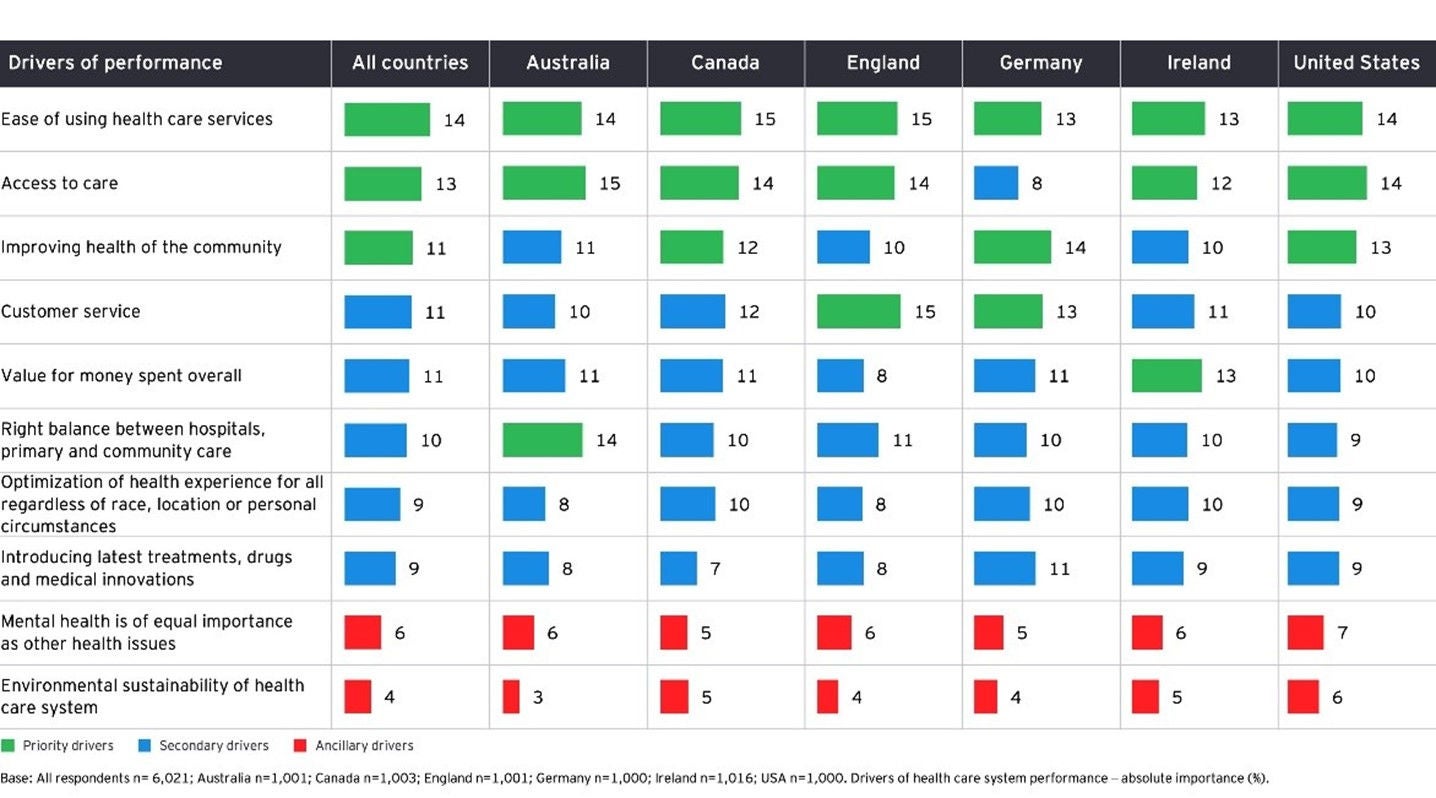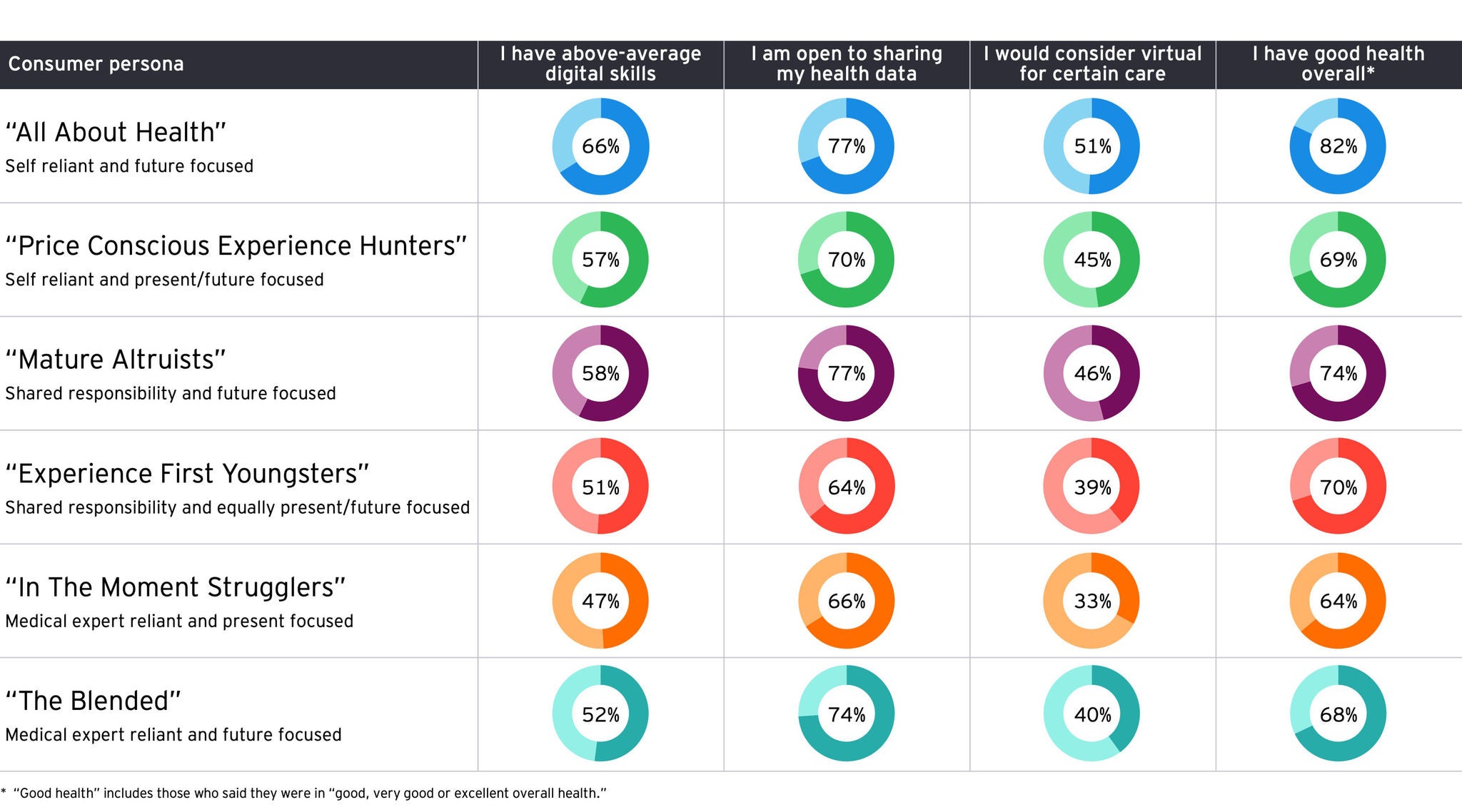EY refers to the global organization, and may refer to one or more, of the member firms of Ernst & Young Global Limited, each of which is a separate legal entity. Ernst & Young Global Limited, a UK company limited by guarantee, does not provide services to clients.
How EY can Help
-
Our Smart Health solutions can help your business become a smart health organization. Learn more.
Read more
However, virtual consultations have a role to play, in particular when someone doesn’t want to wait for an in-person appointment (34%) and for convenience (31%). Across the six countries surveyed, over two in five (44%) are willing to consider a virtual consultation, especially in these situations:
- Renew a prescription (67%)
- Discuss test results (61%)
- Save time (57%)
- For a minor medical condition (56%)
In the survey, consumers also indicated openness to data sharing. Overall, three-quarters (73%) of the survey respondents would agree to have their medical information automatically shared electronically with the different places they receive medical care. But they made clear they want to know upfront how that personal health information is protected and used (79% agree/strongly agrees).
What will they agree to share?
- Biometric data (such as blood pressure or glucose) - 77%
- Dietary or nutritional information - 72%
- Lifestyle choices (such as smoking or drinking) - 71%
- Patient-reported outcomes - 66%
- Genetic information - 63%
As for the profile of those who are more open to sharing, those with a chronic health condition (77%) and those aged 65 years or more (76%) are more likely to agree to have their information shared. Individuals are more likely to share information for research purposes (65% agree), as opposed to helping pharmaceutical companies and medical device manufacturers improve the effectiveness of their products (50%).
What do consumers view as the future of health care?
The future of wellness can only be realized by embracing emerging technologies to move care closer to the consumer wherever they are. So how open are consumers to concepts such as hospital at home and genetic testing that will power the future of health and wellness? The EY survey found:
- 68% are prepared to take a genetic test to assess predispositions to diseases
- 66% agree to take medication that matches their genetic profile
- 66% are also prepared to access health care services in non-health care facilities (i.e., home or store)
- 64% agree to use wearable devices to collect their health information (blood pressure or blood glucose) and send it to the doctor
- 60% to be treated via a hospital-in-the-home program
On the other hand, individuals are less inclined to use products defined as “high tech” to treat a health condition, such as smart pills that travel with the bloodstream and transmit messages to their phones, with 43% agreeing to use them.
Key actions for health organizations
The survey findings spotlight key opportunity zones for health systems. The biggest opportunities lie in improving those aspects consumers rated as very important but where they rated their current health system as having lower performance (as shown in the matrix below).







